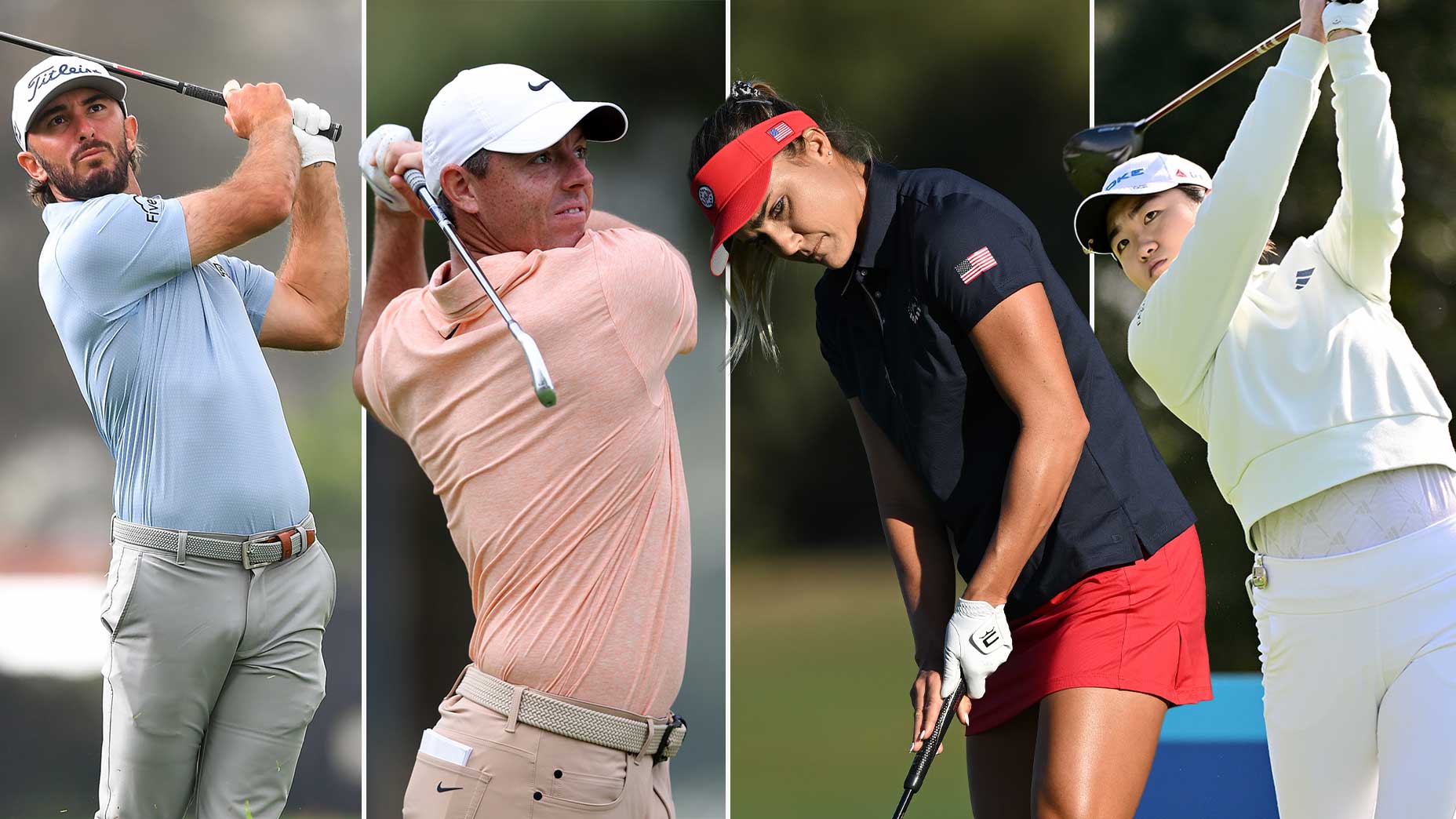PALM BEACH GARDENS, Fla. — When Chris Kirk has put away his putter, when he’s hit his last competitive shot and signed his last scorecard, his story cannot be told without mention of the final year of the Honda Classic.
Because it was one year ago that Kirk, now 38, completed the long journey that started with him turning pro in 2007, joining the PGA Tour four years later, taking an indefinite leave from the sport in May 2019 to deal with alcohol abuse and depression, and climbing back to the top by holding the crystal trophy handed to the winner of the tournament now known as the Cognizant Classic in the Palm Beaches.
“Definitely felt like a full-circle moment,” Kirk said. “To spend the time that I did to get to a place that I had never gotten to before, mentally and physically, just felt amazing.”
Kirk is in a much better place than he was five years ago. Returning to PGA National for this week’s Cognizant Classic to defend hit title will do nothing but buoy those spirits by bringing back one of the fondest moments of his long career.
Kirk called his first win since getting his life back on track the biggest of his six on tour. He added to that trophy case this year with number six, capturing the Tour’s 2024 season opener, The Sentry, a signature event that earned him a $3.6 million winner’s check.
Although Kirk struggled to find consistency following the victory in Palm Beach Gardens – he entered 19 more events with five top 25s and seven missed cuts – he played well enough to make the FedEx Cup Playoffs and qualify for all the 2024 signature events.
This coming despite Kirk admitting “I didn’t really feel like I was going to play golf again,” the day he was named recipient of the PGA Tour Courage Award.
And more important than hitting fairways and greens in regulation was everything going on outside the ropes.
Kirk took a seven-month break, starting in April 2019. He had played in 17 events, missing 11 cuts. His life, and game, was spiraling out of control.
Seven months later, he was back on Tour. Still struggling to make cuts, Kirk missed five straight after returning. He then found his calling resonated beyond the course.
Once Kirk started talking openly about his issues, he learned he had a voice that could help others.
Chris Kirk walks off the 18th hole during the second round of the 2024 Sony Open in Hawaii at Waialae Country Club. (Photo: Kyle Terada-USA TODAY Sports)
“I’ve heard from people reaching out to me, and the direct connection I’ve had with so many countless other people that have been in my situation,” he said. “I do see it now, this is a platform where I can help others and that’s been an amazing part of it.”
Kirk being honest and open about his struggles was cathartic. He took responsibility for his actions, which allowed him to feel good about himself for the first time in a long time.
Responsibility like admitting he was “hiding” a lot of things and “lying” to his friends, family and himself.
“It’s amazing how warped your mind can be and the things that I was able to convince myself of during that time,” he said. “To get to a point where it’s just all out on the table, this is who I am … take it or leave it.
“That was just such a relief, such a freeing feeling. That was initially why I was open about it. I have nothing to hide, this is who I am. I was so relieved just to be able to look at myself in the mirror and be okay with who I was, and I hadn’t felt that feeling in a long, long time.”
Kirk’s life and golf game coming together have gone hand-in-hand. Winning The Sentry has continued that confidence climb, and allowed the Athens, Georgia, resident to reset goals.
“I feel like I’m in a better place now as far as the golf is concerned,” he said. “Last year, it’s certainly understandable to feel the way I did … a little bit of a shock like, ‘Wow, I did it, now what are you going to do?’ ”
Whether it’s because his life is in the best place it’s been since he turned pro, or whether he is just a late bloomer, Kirk’s game is as good as it was when he peaked at 16th in the world in 2015.
Now fourth in the FedEx Cup race, he was No. 21 after winning in Maui and is now 26th. Kirk tumbled to 522th in the world ranking in 2020.
“This is a crazy game,” he said. “I’m done trying to figure out who’s gonna make it, who’s not gonna make it. Why am I as good as I am? Other people that have worked harder than me, why have they not made it? It all plays out the way that it’s going to.”
But Kirk found that secret, at least to his game, that had much more to do than spending time on the range.
“If you’re just constantly seeking improvement and constantly seeking as much excellence in your life as possible,” he said. “The relationships with the people I care the most are better than they ever even were before. That’s kind of the main number one, focusing on that and being very thankful for where I’m at with that.”









